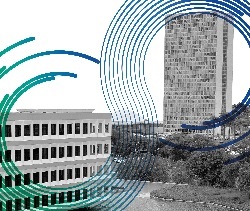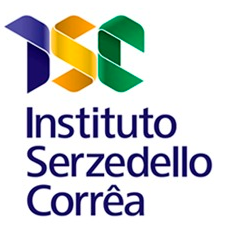Tribunal de Contas da União
The Brazilian Federal Court of Accounts takes part in international event on anti-corruption strategies in infrastructure projects
In November, the Department of External Control for Energy and Communications (SecexEnergia) represented the Brazilian Federal Court of Accounts (TCU) in a workshop on anti-corruption strategies and good practices in infrastructure held in Cartagena, Colombia. The event focused on exploring strategies and practices to fight corruption in infrastructure projects and was carried out by the Organization for Economic Cooperation and Development (OECD) in collaboration with the United States Department of State and Colombia's Development Bank (FDN).
Over two days of event, the workshop featured seven discussion sessions. SecexEnergia took part in the panel "Developing risk identification and mitigation strategies at the project level", represented by auditor Guilherme Souto.
Souto presented TCU’s works led by SecexEnergia in the energy infrastructure sector. "During the panel, I shared insights of the first stage of the study Viabilidade em Foco (Viability in Focus), which addresses unfinished infrastructure projects and strategies to mitigate corruption risks. Based on the study information, I emphasized the significance of methodologies such as Risk-Analysis, Front-End Loading, The Five Case Model, and Reference Class Forecasting, which proved to be effective in countries such as the United Kingdom and New Zealand, promoting transparency and accountability", he said.
The SecexEnergia auditor also spoke about TCU's performance in the project regarding PETROBRAS’ Abreu Lima Refinery (Rnest). "This case is important as it illustrates how even theoretically robust governance systems can be subverted. I emphasized the need for a continuous monitoring by both internal and external control bodies from the initial stage of the projects. I also explained the process by which the TCU selects audit subjects from PETROBRAS’ investment portfolio, based on risk analysis," he clarified.
The event was a platform for the OECD to launch the anti-corruption axis of the Blue Dot Network, a global certification initiative focused on quality infrastructure. Initiated by the governments of the USA, Australia, and Japan, the initiative aims to mobilize private investments in infrastructure projects. To achieve this goal, it will ensure that the projects adhere to international best practices by being transparent, sustainable, and economically viable.
The final presentation session was dedicated to showcasing the work undertaken by the OECD team, intended to serve as a reference for the anti-corruption axis in the Blue Dot Network. It also addressed opportunities for the participating countries to collaborate towards improving the product. "This experience provided us with valuable points of view and insights, in addition to networking opportunities with specialists in the sector, such as representatives from the Ministry of Innovation and the ENBPar (Brazilian Company for Nuclear and Binational Energy Participations), who seized the opportunity to strengthen their relationship with the TCU and propose strategies for improving their work processes," concluded Souto.


